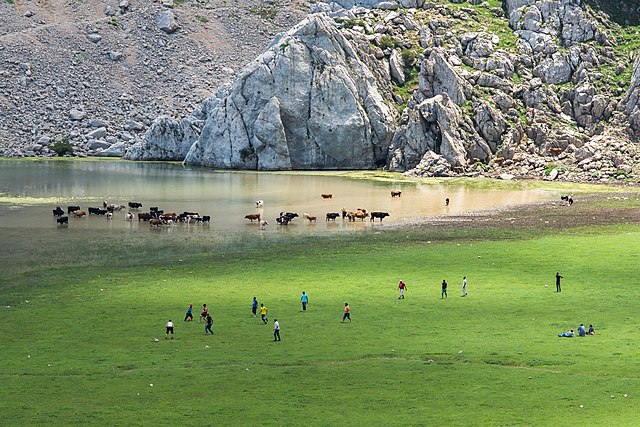Algeria’s Ministry of Agriculture on April 24, 2024 signed a deal with Qatar’s firm Baladna, to build the world’s largest dairy farm.
According to the Ministry’s statement, the project will establish a breeding farm for cow milk and meat production. Key products from the vast integrated infrastructure will be milk powder and red meat, among others.
The project will cover 170,000 hectares in Adrar province in southern Algeria, at a cost of $3.5 billion.
The facility will feature a trio of hubs, namely a pasture, a cattle farm and a milk processing plant.
Baladna revealed that the venue will incorporate 270,000 heads of cattle, which will produce 1.7 billion litres of milk yearly.
The Gulf firm, whose market cap is $2.5 billion, will hold 51% shares in the project while Algeria will retain 49%.
Algeria, a Milk Profile
The dairy farm will provide Algeria half its total milk needs annually and satiate the country’s thirst for dairy products.
Hitherto, the North African country has been relying on milk concentrate imports, which totaled $1.62 billion in 2022.
The cattle herd in Algeria produced 2.5 billion liters of milk in 2022 against a nationwide requirement of 4.5 billion liters. Hence, the coming of the Adrar facility will virtually end decades of import reliance.
Since 2021, Algeria’s government has been upping local production of dairy through cattle farming modernization. 2022 estimates by the U.S. Department of Agriculture (USDA) indicated that Algeria’s milk powder imports would level off in 2023.
The Algerian median milk consumption is 55 liters above the world average, and in 2015 it was 150 liters per capita.
In recent years, especially 2022, rising milk needs have attracted cattle smuggling from Tunisia to meet demand. The government’s integral role to start the Adrar dairy farm therefore underlines the importance of cow milk in the country.
